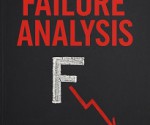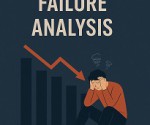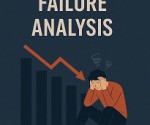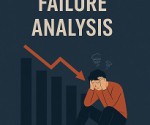HPSC Political Science Assistant Professor Test Series 2023
HPSC Political Science Assistant Professor Test Series 2023
Online Test Series : Offline Test Series
- Kushmanda offers Online Test Series For Political Science with Detailed Explanations. Our Online Test Series is developed by Kushmanda Research and Development wing. Yet, they cover the complete Syllabus along with an in-depth Analysis of all Entrance Quwstions.
- Online Test Series is divided into three parts; such as Topic-wise Tests and Mock Tests along with detailed explanations.
Test Series for the post of HPSC Assistant Professor (College Cadre) in the subject of Political Science
Sectional Test1: Political Theory and Thought
Ancient Indian Political Thought : Kautilya and Shanti Parva.
Greek Political Thought : Plato and Aristotle.
European Thought – I : Machiavelli, Hobbes, Locke, Rousseau.
European Thought – II : Bentham, J. S. Mill, Hegel, Marx and Green.
Contemporary Political Thought – I : Lenin, Mao, Gramsci.
Contemporary Political Thought – II : Rawls, Nozic and Communitarians.
Modern Indian Thought : Gandhi, M. N. Roy, Aurobindo Ghosh, Joy Prakash Ambedkar,
Savarkar.
Concepts and Issue – I : Medieval Political Thought: Church State Relationship and
Theory of Two Swords.
Concepts and Issue – II : Behaviouralism and Post-Behaviouralism, Decline and
Resurgence of Political Theory. Democracy, Liberty and Equality.
Sectional Test 2: Comparative Politics and Political Analysis
Evolution of Comparative Politics as a discipline; nature and scope.
Approaches to the study of comparative politics : Traditional, Structural – Functional,
Systems and Marxist.
Constitutionalism : Concepts, Problems and Limitations.
Forms of Government : Unitary – Federal, Parliamentary – Presidential.
Organs of Government : Executive, Legislature, Judiciary – their interrelationship in
comparative perspective.
Party Systems and Pressure Groups; Electoral Systems.
Bureaucracy – types and roles.
Political Development and Political Modernization.
Political Culture, Political Socialization and Political Communication.
Political Elite; Elitist theory of Democracy.
Power, Authority and Legitimacy.
Revolution : Theories and Types.
Dependency : Development and Under Development.
Sectional Test 3: Indian Government and Politics
National Movement, Constitutional Developments and the Making of Indian
Constitution.
Ideological Bases of the Indian Constitution, Preamble, Fundamental Rights and Duties and Directive Principles.
Constitution as Instrument of Socio – Economic Change, Constitutional Amendments and Review.
Structure and Process – I : President, Prime Minister, Council of Ministers, Working of the Parliamentary System.
Structure and Process – II : Governor, Chief Minister, Council of Ministers, State Legislature.
Panchayati Raj Institutions : Rural and Urban, their working.
Federalism : Theory and Practice in India; Demands of Autonomy and Separatist
Movements; Emerging trends in Centre – State Relations.
Judiciary : Supreme Court, High Courts, Judicial Review, Judicial Activism including Public Interest Litigation cases, Judicial Reforms.
Political Parties, Pressure Groups, Public Opinion, Media; Subaltern and Peasant Movements.
Elections, Electoral Behaviour, Election Commission and Electoral Reforms.
Sectional Test 4: Public Administration
Development of Public Administration as a discipline; Approaches to the study of Public
Administration : Decision – making, Ecological and Systems; Development
Administration.
Theories of Organization
Principles of Organization : Line and staff, unity of command, hierarchy, span of control,
centralization and decentralization, Types of organization – formal and informal; Forms
of organization; department, public corporation and board.
Chief Executive : Types, functions and roles.
Personnel Administration : Recruitment, Training, Promotion, Discipline, Morale;
Employee – Employer Relations.
Bureaucracy : Theories, Types and Roles; Max Weber and his critics. Civil servant –Minister relationship.
Leadership, its role in decision – making; Communication.
Financial Administration : Budget, Audit, Control over Finance with special reference to India and UK.
Good Governance; Problems of Administrative Corruption; Transparency and Accountability; Right to Information.
Grievance Redressal Institutions : Ombudsman, Lokpal and Lokayukta.
Sectional Test 5: International Relations
Contending Theories and Approaches to the study of International Relations; Idealist,
Realist, Systems, Game, Communication and Decision – making.
Power, Interest and Ideology in International Relations; Elements of Power : Acquisition,use and limitations of power, Perception, Formulation and Promotion of National Interest, Meaning, Role and Relevance of Ideology in International Relations.
Arms and Wars : Nature, causes and types of wars / conflicts including ethnic disputes; conventional, Nuclear / bio – chemical wars; deterrence, Arms Race, Arms Control and Disarmament.
Peaceful Settlement of Disputes, Conflict Resolution, Diplomacy, World – order and Peace studies.
Cold War, Alliances, Non – Alignment, End of Cold war, Globalisation.
Rights and Duties of states in international law, intervention, Treaty law, prevention and abolition of war.
Political Economy of International Relations; New International Economic Order, North
– South Dialogue, South – South Cooperation, WTO, Neo – colonialism and Dependency.
Regional and sub – regional organisations especially SAARC, ASEAN, OPEC, OAS.
United Nations : Aims, Objectives, Structure and Evaluation of the working of UN; Peace and Development perspectives; Charter Revision; Power – struggle and Diplomacy within UN, Financing and Peace – keeping operations.
India’s Role in International affairs: India’s relations with its neighbours, Wars, Security Concerns and Pacts, Mediatory Role, distinguishing features of Indian Foreign Policy and Diplomacy.
Test 6
Test 7
Test 8
Test 9
Test 10
FEE: Rs 3500/-
KUSHMANDA IAS HCS ACADEMY
PANIPAT HARYANA
HELPLINE :8607570992, 9728926678
















